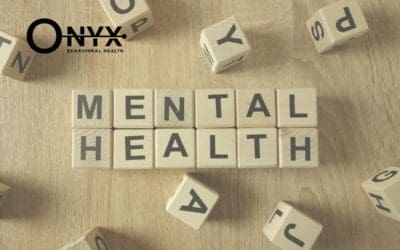Depression is one of the most common mental illnesses in America, affecting an estimated 21 million adults. The consequences can be devastating both for those diagnosed as well as their loved ones, taking a toll on people’s ability to work or maintain relationships, or in severe cases, hurting themselves. Despite how serious a condition depression is, about two-thirds of those diagnosed don’t seek treatment due to some misconception or another. Here, we’ll talk all about depression to set the facts straight from the myths.
Depression signs and symptoms
Depression is a mental health condition characterized by persistent feelings of sadness, hopelessness, and a loss of interest in activities once enjoyed. It is more than just a temporary bout of blues or a passing mood. It is a complex disorder that affects an individual’s thoughts, emotions, behaviors, and overall well-being.
Emotional symptoms:
- Persistent feelings of sadness, emptiness, or hopelessness
- Loss of interest or pleasure in activities once enjoyed
- Irritability or restlessness
- Feelings of worthlessness or excessive guilt
- Frequent crying spells or emotional outbursts
Behavioral symptoms:
- Withdrawal from social activities or isolation
- Changes in appetite or weight (either loss or gain)
- Sleep disturbances (insomnia or excessive sleeping)
- Fatigue or lack of energy
- Restlessness or slowed movements
Cognitive symptoms:
- Difficulty concentrating or making decisions
- Memory problems or forgetfulness
- Negative or distorted thinking patterns
- Recurrent thoughts of death or suicide
Contrary to popular belief, depression is not a one-size-fits-all experience. It can manifest in various forms and severities, ranging from mild to severe, and can be influenced by a multitude of factors, including genetic, environmental, and biological contributors.
Types of depression
Depression is a broad term that encompasses several specific types and subtypes. It’s important to recognize that the signs and symptoms of depression can vary greatly depending on the type of depression they exhibit.
- Major Depressive Disorder (MDD) is the most well-known type of depression. It’s characterized by persistent feelings of sadness, emptiness, and a loss of interest or pleasure in activities. MDD can significantly impair an individual’s ability to function in daily life.
- Persistent Depressive Disorder (PDD), also known as dysthymia, is a chronic form of depression that involves a less severe but more persistent depressed mood, lasting for at least two years in adults or one year in children and adolescents.
- Bipolar disorder is a condition that involves episodes of depression alternating with periods of mania or hypomania, characterized by elevated mood, increased energy, and impulsive behavior.
- Seasonal Affective Disorder (SAD) type of depression is related to changes in seasons, typically occurring during the winter months when there is less sunlight exposure.
- Postpartum depression can occur in women after giving birth, often due to hormonal shifts, stress, and lifestyle changes associated with becoming a new parent.
- Premenstrual Dysphoric Disorder (PMDD) involves severe mood changes and physical symptoms that occur during the luteal phase of the menstrual cycle (the week or two before menstruation).
Common misconceptions about people with depression
Myth #1: Depression is a sign of weakness or laziness
Depression is a legitimate medical condition that affects brain chemistry and function. It is not a choice or a character flaw, and dismissing it as mere laziness or weakness only perpetuates stigma and hinders individuals from seeking help.
Myth #2: People with depression can simply “snap out of it”
Depression is a complex mental health condition that cannot be overcome through sheer willpower or positive thinking alone. While a supportive environment and self-care practices can aid in recovery, professional treatment is often necessary to manage the underlying causes and symptoms.
Myth #3: Depression only affects certain types of people
Depression can affect individuals of any age, gender, race, socioeconomic status, or background. It is a widespread condition that does not discriminate, and anyone can be susceptible to its effects.
Myth #4: Talking about depression or suicidal thoughts can encourage harmful behavior
Open and honest communication about depression and suicidal thoughts is crucial in identifying and addressing these issues. Discussing these topics does not increase the risk of harm but rather creates an opportunity for support and intervention.
If you have a loved one or friend struggling with depression, your support can play a crucial role in their recovery journey. One of the most impactful things you can do is to gently encourage them to seek professional help for depression from a mental health professional. Depression is a manageable condition with the right combination of therapies, lifestyle changes, and coping strategies. Together, we can identify the best course of action for treating your unique mental health needs.





 Kendra Cemoin
Kendra Cemoin Michaela Welk, LMHC
Michaela Welk, LMHC Bunny Berman
Bunny Berman Tank
Tank Richard E. LoSardo, MD
Richard E. LoSardo, MD Christopher Payne
Christopher Payne Bernard Benjamin
Bernard Benjamin